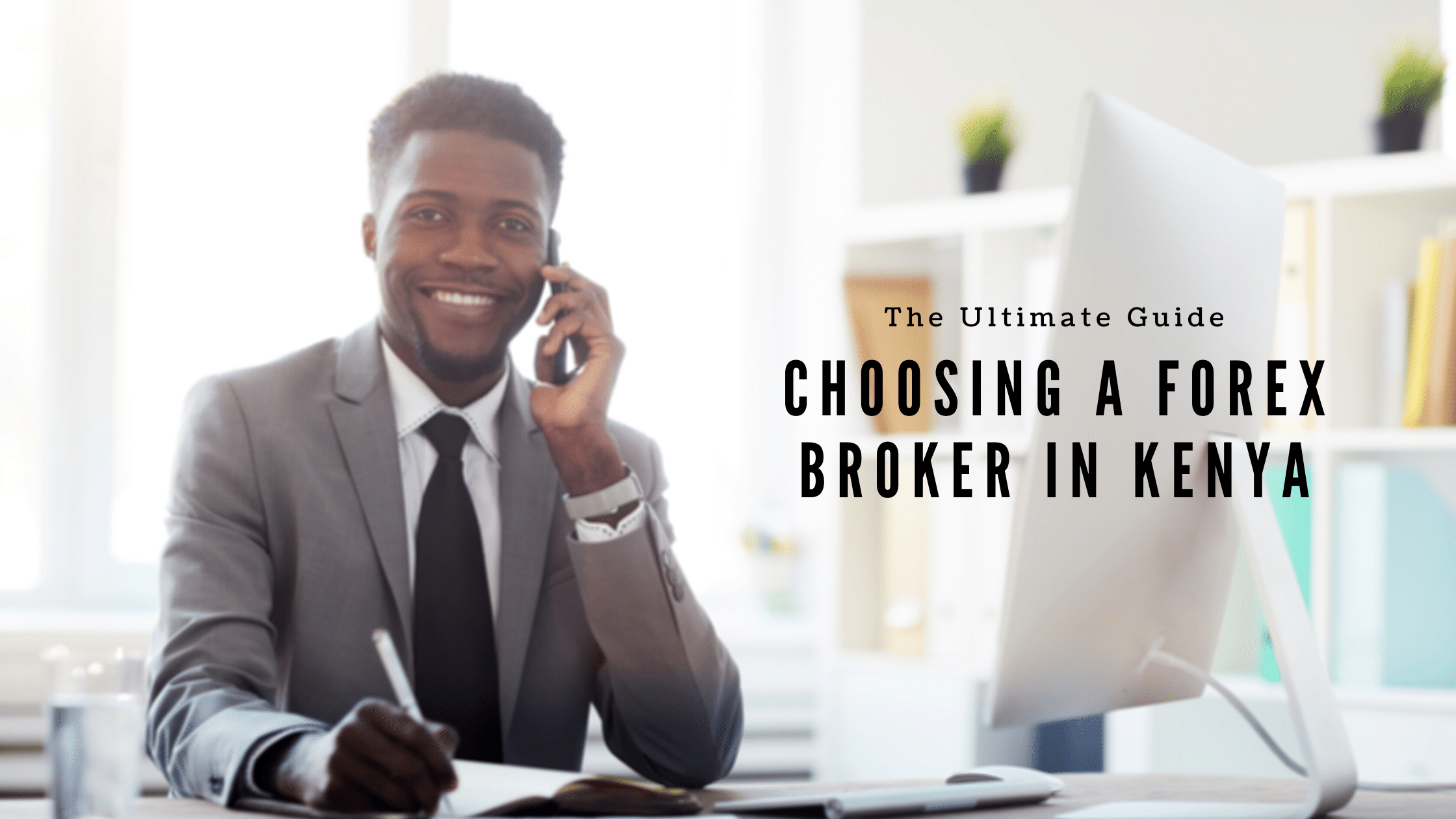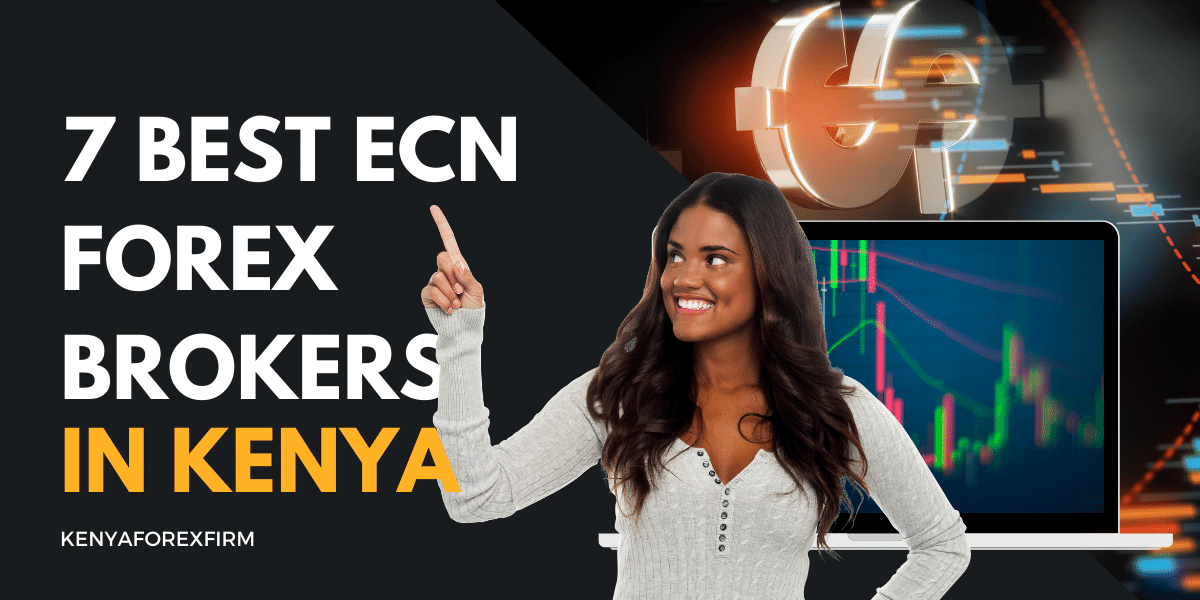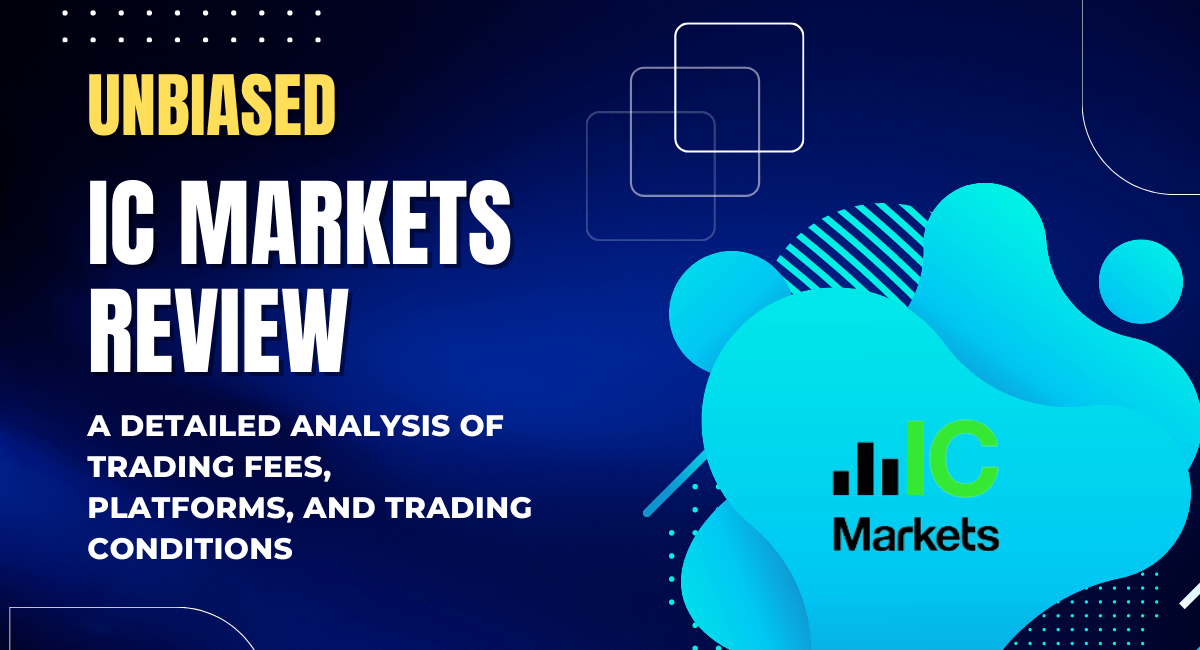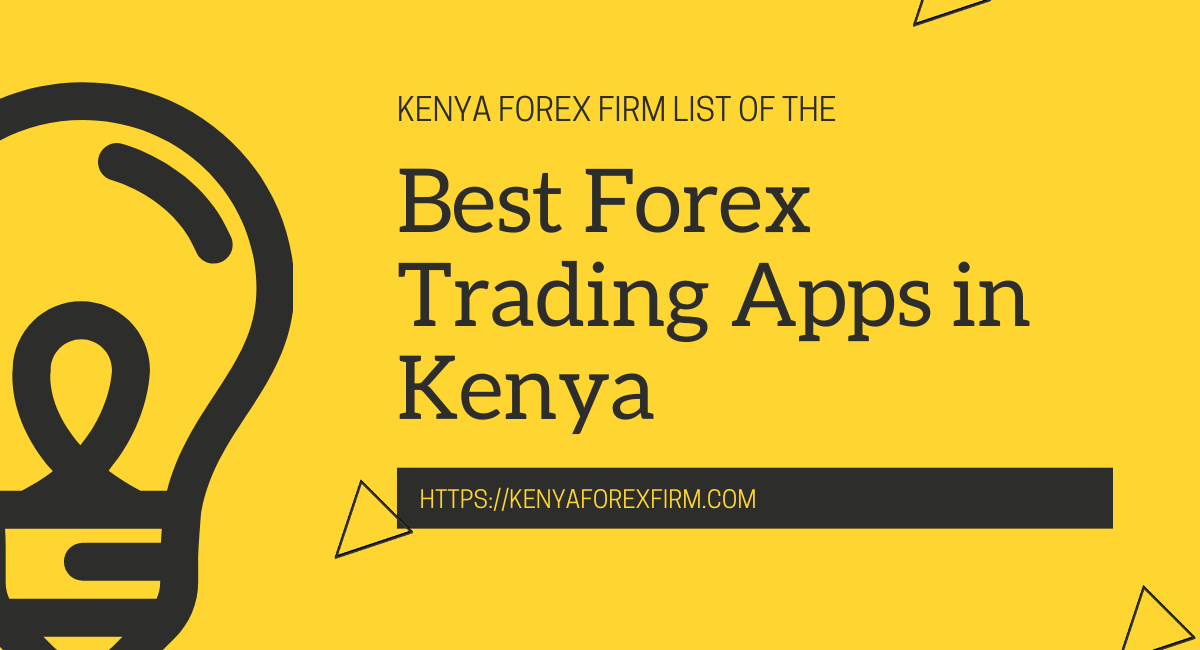How to Choose the Best Forex Broker in Kenya
Table Contents

I am a member of several online forums where members discuss all matters forex. One of the hottest/recurrent topics that I see in these forums concerns problems with choosing a forex broker. In fact, I would go ahead and say that not a day passes without someone posting about a ‘problematic’ broker.
The problems discussed range from forex brokers not processing withdrawal requests on time; forex brokers who are so aggressive in stop loss hunting or forex brokers who close all your open positions and liquidate your account for no evident reason.
Almost every beginner to online forex trading passes through a phase where they mistrust their forex broker. I understand this skepticism. It is actually an excellent survival mechanism. Online forex brokers range from highly reputable and strictly regulated firms handling a lot of client accounts honorably, to those that are highly questionable in price quotation and order execution, to the outright frauds that sprout overnight and are gone by morning, depriving you of your money even without giving you the chance to set up your MT4 trading software.
It is therefore recommended that you do thorough research when you are choosing a forex broker to trust with your money. Carrying out due diligence when choosing a broker is the number one rule that will help you avoid future problems with your broker.
[su_box title=“Must Read” style=“noise” box_color=“#26394a”]
[su_service title=“Must Read” icon=“icon: info-circle” icon_color=“#8b112b”]Your choice of a broker will have significant impact on your chances of becoming a successful forex trader. I have written two detailed guided on the best forex brokers in 2021. One is targeted at beginners while the other one is more suited for intermediate and pro traders. Make sure to read these next
[/su_service][/su_box]
Who/What are Online Forex Brokers?
Online forex brokers are financial institutions that act as intermediaries between you and the major liquidity providers or the interbanks. The brokers execute orders on your behalf or, in the case of ECN brokerage firms, provide a platform for the retail traders to place buy and sell orders.
Forex brokers operate through websites which allow you to make trades via proprietary software or through an independent trading software such as the MetaTrader4.
Forex brokers usually make their money via the spread, which is the difference between the bid and the ask price. For instance, a forex broker may buy Euros at 1.5475 U.S dollars and at the same time sell the Euros at 1.5478. In this case, the spread is 0.0003 USD or 3 pips.
Before you start investing in forex trading, it is important that you do background research to establish whether the broker you are thinking of investing with is reputable and whether he has the features that you are looking for.
Here are 9 questions to ask yourself when you are shopping for a forex broker:
-
Is the broker regulated, if so, which bodies/organization regulate the broker?
-
How efficient is the brokers trading platform?
-
Capitalization
-
Is the company a broker or a dealer
-
How supportive is the broker’s customer support department?
-
What is the cost of trading with the broker?
-
What account types does the forex broker offer?
-
Does the broker offer any value added services?
-
What are the broker’s requirements concerning margin and leverage?
Is the Broker Regulated? In Which Country?
Regulation for forex brokers differ from country to country. I have heard people argue that since we are trading forex in Kenya, it does not matter where the forex broker you choose is regulated. This is a big no. I’d rather choose a broker in a country where there are strict regulations (the US of A) than choose a broker where the regulatory framework is a sham (Russia or Cyprus?).
Some of the countries where the regulations are intact include:
-
The USA
-
UK
-
Eurozone
-
Japan
-
Australia
-
Switzerland
Choosing a broker that is regulated in one of these countries brings you one step closer to avoiding future problems with your broker or to avoiding an outright scam.
However, you shoudn’t take a broker’s word for it. It is easier for a forex broker to write that they are regulated by so-and-so on their website. Anyone can do that. Take it a step further. Visit the regulatory authorities website and seek whether the broker is really regulated by the said authority.
How Reliable is the Brokers Trading Platform?
Depending on your hardware and software limitations, you may either choose to trade forex on a web-based application or on a software that you install on your computer. You need to decide which platform suits you best before you choose a broker.
The broker you choose must be able to offer the trading application that suits you. More importantly, however, the trading platform needs to be perfectly stable. You do not want the agony of a platform that hangs whenever the market activity increases. Nothing else is as important as the stability of the trading platform; forget the look and feel. Stability is king.
User-friendliness is another unique characteristic that you need to watch out for when vetting a broker’s trading platform. In the forex trading circles, user-friendliness refers to the ease with which you can place your orders, including limit and stop-loss orders. Most brokers offer one-click order platforms.
How Capitalized is the Forex Broker?
The more capitalized a forex broker is, the better their credit connections with liquidity providers are.
Since forex is traded over the counter (OTC), it becomes exceedingly difficult for a forex broker to get competitive currency pricing without depositing a considerable margin with a lending institution or bank.
In addition, many forex brokers are required to comply with a minimum capitalization level. This capitalization level is directly related to the broker’s ability to stay solvent. If a forex brokerage company does not publicly declare its minimum capitalization level, this could be a warning sign about the company’s solvency.
Is the Brokerage Firm a Broker or a Dealer?
Understanding the nature of a forex brokerage company is an important step as there are several types of brokers in the OTC forex market.
Dealing with a broker
Brokers act as intermediaries between you and the market makers/dealers. Brokers make use of computer systems to process your orders. The orders do not typically go through a dealing desk, hence the term ‘non dealing desk’.
The technology through which a broker sends your orders to the market makers/dealers is called Straight Through Processing or STP. The spreads that you get on your orders are dependent on the market maker that your broker routes your order through.
Brokers can either charge you a fee for this service or are compensated by the market maker for the transactions that are routed to the market makers desk.
Dealing With a Market Maker aka Dealer
All market makers make use of a dealing desk, which is the traditional method used by conventional financial institutions and banks to process customer orders. As the name suggests, market makers ‘make’ their own bid and ask price and display them on their trading platforms.
The market makers are always ready to take your order. However, in doing this, they become counterparts to each transaction you make. If you happen to sell 10 lots of USD, the market maker must be prepared to buy the 10 lots from you. In others words, whenever you sell a currency, the market makers must buy. The vice versa is also true.
As counterparties to your trades, the forex market makers may try to hedge or cover your order by passing it on to someone else. There are also times when the market maker will decide to hold your order, and trade against you.
Most market makers provide you with a fixed currency price throughout the day. The exchange rates that they set is based on their best interests. However, they try to keep the prices fair due to the stiff competition that characterizes the market maker industry.
On paper, market makers are supposed to make profits through the spread that their charge you. However, this is always not the case and some forex market makers have been known to utilize unscrupulous means to get an edge over you.
ECN Brokerage Model
The ECN brokerage model is the new kid on the block. An ECN broker will pass you prices from various market participants including banks, market makers and other financial institutions. ECN brokers display the best bid/ask price on their trading platforms.
Unlike the market makers who offer fixed spreads, the spreads offered by ECN brokers vary depending on a currency pair’s activity in the market. During periods of intense market activity, ECN brokers will not charge any spread.
Unlike the other brokerage models that charge spreads on your trades, ECNs charge a commission on every trade that you place. Really authentic ECN brokers do not play a part in price determination, therefore, your risk of losing trades due to price manipulation is non-existent.
Customer Support
Customer support is one of the core pillars of online forex trading. Since the forex market is a 24-hour market, the forex broker you choose should be able to provide support around the clock.
Most importantly, what medium of communication does the forex broker offer? Email, toll-free phone numbers and online chat applications are some of the most important communication tools offered by forex brokers.
You also need to deal with a forex broker whose customer support staff are knowledgeable. There is nothing as agonizing as having to deal with customer reps who do not have a clue to what you are talking about. It wastes time, which is one of the most precious resources you have as a forex trader. You can tell how knowledgeable the customer support staff is by the way they answer your questions.
It is not uncommon to run into technical issues when trading. Try to simulate a technical glitch, formulate the questions that you would have, and see how the support staff answers them.
Cost: Spreads and Commissions
The forex market prides itself on being a cost-free market to invest. Many market markers try to entice retail traders to trade more and more from this unique feature of the forex market; they promise no commissions, no regulatory fees and no data fees.
Something that the market makers fail to tell you is that your trading costs depend on you trading. Your frequency of trading, ratio and size have an impact on the cost of your trading.
Depending on the forex broker you choose, you will either pay:
-
a fixed spread
-
variable spread, or
-
commission on your trades.
As a quick reminder, spread is the difference between ask price and the bid price.
Which is the best choice?
Depending on how you look at it, you may take the fixed spread as the best choice since you always know what your trades will cost you. On the other hand, a variable spread means that you may sometimes pay a very low transaction cost, especially if you time your trades to coincide with the periods of heightened market activity.
Most forex brokers do not charge commission on trades, so the spread is the way that they make money. In such a case, the lower the spread, the higher the hypothetical profit that you will make.
In the case of forex brokers who offer variable spreads, you can expect the spread to be as low as 1 pip or as high as 7 times during periods of low market activity.
The best deal lays in choosing the right forex broker. If you choose a broker who is well regulated and capitalized, you have less to worry about. Secondly, you need to factor in your trading model and choose a cost model that is favorable to your trading model.
Slippage
Reduced liquidity or high volatility may cause your forex broker to apply ‘slippage’ (or requotes) on your orders. Slippage occurs when your order is executed at a price that is different from the one that was quoted. If you trade the news or you are a small timer, this is a cost that you cannot bear to bear. You should therefore choose a broker who does not offer requotes.
Account Types
Many online forex brokers offer different account types ranging from standard accounts, to mini accounts, to micro accounts. The size of the account depends on the lots that you wish to trade.
If you have forgotten about lots, here is a quick overview of lot sizes:
-
A standard lot is a lot that consists of 100,000 units of the base currency
-
A mini lot consists of 10,000 units of the base currency
-
A micro lot consists of 1000 units of the base currency.
The mini and micro forex accounts require low initial capital while the standard account may demand that you invest a lot of money.
As you can see, the account type is depended on the amount of capital you have to start trading. Choosing a forex broker that offers an account type of your size will save you a lot of headaches when you are managing your money and risks.
Does the Broker Provide any Value added Services?
Easy access to charting tools, real time data, news analysis and economic data are the bread and butter of all professional traders. If your forex brokers offers all these tools, you have landed on a winner.
Leverage and Margin Call Policies
A lot of forex traders in Kenya gravitate towards forex brokers who offer high leverage. However, you should remember that leverage is a double-edged sword. It can make you freaking rich or agonizingly poor. Do not base your decision of a forex broker in Kenya only on this feauture.
Some brokers offer a fixed leverage rate while others will vary the leverage rate depending on the currency that you are trading.
You also need to understand your broker’s margin call policy.

Patrick Mahinge
Forex Trading Coach
Patrick Mahinge is a seasoned forex trading coach based in Kenya with over a decade of experience in financial markets.
Stay Updated with Forex Insights
Subscribe to our newsletter for expert trading tips, market analysis, and exclusive updates.
No spam. Unsubscribe anytime.
Related Articles
Contents

Patrick Mahinge
Patrick Mahinge is a seasoned forex trading coach based in Kenya with over a decade of experience in financial markets.


